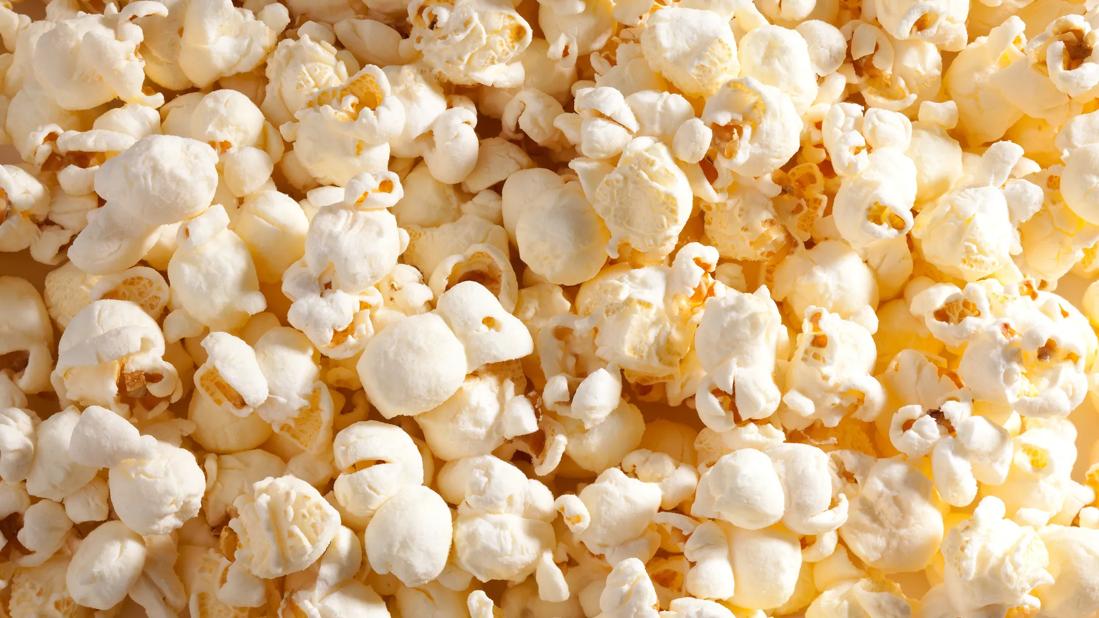
Who doesn’t love a bowl of hot popcorn when the munchies strike? What’s even better, this popular snack has some surprising health benefits — as long as you choose the right ingredients. Registered dietitian Gillian Culbertson, MS, RD, LD, dishes out the potential health perks of popcorn.
Advertisement
Cleveland Clinic is a non-profit academic medical center. Advertising on our site helps support our mission. We do not endorse non-Cleveland Clinic products or services. Policy
Is popcorn healthy?
Popcorn contains fiber for digestion and antioxidants that could help fight obesity, Type 2 diabetes, cancer and heart disease. Ounce for ounce, popcorn has more antioxidants than fruits and vegetables.
That’s great news for popcorn lovers, but it’s not a free pass to ditch the produce. Eating a variety of plants helps you get the antioxidants, vitamins and minerals you need to stay healthy.
Here are the deets on popcorn, and seven ways it can benefit your health.
Nutrition breakdown
Two cups of air-popped popcorn contain:
- 62 calories
- 12.4 grams of carbohydrates
- 0.73 grams of fat
- 2.3 grams of fiber
- 2 grams of protein
1. Boosts gut health
Popcorn is a good source of fiber, which is perhaps best known for its ability to “get things moving” in your bowels. But fiber isn’t just about relieving constipation. It’s the ultimate food for your gut microbiome, which boosts your overall health.
“A healthy gut can lead to better metabolism, immunity and brain health,” says Culberston. “Eating fiber improves gut health because it feeds the friendly bacteria in your gut that keep things balanced.”
2. Combats obesity
Don’t let the delicious crunch fool you: Popcorn is a great snack if you’re trying to shed pounds. It boasts high fiber content and no added sugar, making you feel fuller on fewer calories.
Advertisement
“Fiber is slower to digest, so it gives you a feeling of satiety,” adds Culbertson. “It’s also low in calories if you choose types without added sugar, butter or oil.”
The weight loss power doesn’t stop there. Popcorn also contains a polyphenol called ferulic acid, which may help combat obesity. “Ferulic acid may help manage obesity and metabolic syndrome,” notes Culbertson. “But this is preliminary research. We need human studies to learn more about this effect.”
3. Helps manage blood sugar
Whether you have diabetes or you’re trying to prevent it, popcorn can be a smart snack choice. “The fiber in whole grains like popcorn helps keep your blood sugar levels stable,” says Culberston. “When you have diabetes or prediabetes, you want to avoid big fluctuations in your blood sugar.”
4. Fights cancer
Evidence shows that whole grains are potential cancer fighters, and popcorn is a fun way to get these grains. “Eating a healthy diet that includes whole grains may lower the risk of breast, colon and stomach cancer,” says Culbertson.
Popcorn may also have some extra cancer-fighting power. “Studies have found ferulic acid combats oxidative stress, which can lead to DNA damage and cancer,” she continues.
5. Lowers blood pressure
Millions of U.S. adults have high blood pressure, which is a leading cause of heart disease. Adding popcorn to your diet — along with other healthy, antioxidant-rich foods — could benefit your blood pressure levels.
“Research suggests the ferulic acid in popcorn has anti-inflammatory effects that promote healthy blood pressure,” says Culbertson. “We also know that a high-fiber diet is associated with lower blood pressure. Enjoy popcorn without butter or salt because these ingredients can cancel out its blood pressure benefits.”
6. Promotes healthy cholesterol levels
High cholesterol raises your risk of atherosclerosis, which can lead to heart attack and stroke. Eating high-fiber, antioxidant-rich foods like popcorn could help prevent these issues.
“The soluble fiber in popcorn removes some cholesterol from your body,” says Culbertson. “In addition, a clinical study found that ferulic acid reduced cholesterol levels in people with high cholesterol.”
7. Protects brain health
Munching on popcorn instead of snacks made with refined grains or added sugar might be a step toward better brain health. “Studies on models found that ferulic acid could slow the progression of Alzheimer’s disease,” reports Culbertson. “Research has also found that eating whole grains can help lower the risk of cognitive decline, giving you two brain health benefits.”
Avoid unhealthy popcorn options
Popcorn starts out as a low-calorie, low-fat snack — until butter, salt and artificial flavorings crash the party.
Advertisement
“Movie theaters and stores often sell popcorn high in saturated fat and sodium,” says Culbertson. “Skip popcorn with high levels of butter, sugar or salt and make your own healthier popcorn. Use a small amount of olive, avocado or canola oil and top with your favorite low-salt, low-sugar seasonings or spices.”
Most microwave varieties also contain added salt, sweeteners, oils and chemicals. Your best bet is to buy the plain kernels and pop them yourself.
“You can use a brown paper bag to pop plain kernels in your microwave,” she suggests. “Another option is to add a small amount of oil to a skillet and pop it on the stovetop or use an air-popper. With these methods, you can start from scratch and decide exactly what’s going into your popcorn.”
Enjoy popcorn the healthy way
Popcorn is surprisingly nutritious, but it’s easy to override those benefits with too much butter and salt. Simply go light on the sodium, sugar and fat, and you’ve got a satisfying, superfood snack.
“Like many foods, the nutrition of popcorn depends on how you prepare it,” reiterates Culbertson. “If you’re used to butter and salt, gradually cut back on the amount you use. Over time, you may find that you enjoy the natural taste of popcorn without all those additives.”
Advertisement
Advertisement
